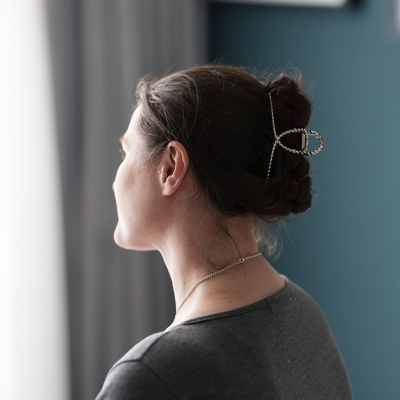“Caring is not for the faint-hearted” - Julie's story
07/06/2023
In this blog for Carers Week, Julie shares her experience caring for her son who deals with severe anxiety and agoraphobia. She sheds light on juggling many responsibilities at once, the debilitating nature of mental illness and the value in appreciating the little things.
It’s devastating to see your son in the prime of his life completely rendered, unable to do ordinary, everyday things without the anxiety that comes alongside an enduring mental health condition. It means he hasn’t been out on his own for nearly 20 years. He finds it incredibly difficult to have people in his flat.
Every weekend, when he comes to stay, we are also unable to have other people over because it causes an emotional overload: a very traumatic seven-hour psychological episode. In this state, he is unable to eat, drink or talk rationally; do anything except go to bed, where he remains for the entire time, scared for his life. Literally. So, that’s a double whammy: anxiety when inside, anxiety when outside.
-
He can’t partake in the everyday life that we all take for granted.
He's had these seven-hour long episodes for the past 20 years, initially four to five times a week, latterly two to four. He can’t cope with it on his own as he doesn’t feel safe, so he comes to our house and will remain there until he comes out of it. He is unsettled during this time and will come and get me to sit with him. I will stay a while then leave his room. He may or may not come to get me two or three, sometimes more than seven times, depending on how unsettled he is.
If I don’t go, he can become agitated and there is no reasoning. I’ve learnt how to deal with it in a calm, considered way but it’s very distressing for him and for me to watch without being able to help. The episode will eventually subside, and he’ll come out of it very tired and very hungry.
Even when he doesn’t have an episode, life is very challenging. We can only take him to a couple of places he knows well locally, and only if the anxiety will allow it. It took a support worker three years to assist him on a food shop without it bringing on an episode. His anxiety is always high and everyday tasks can send him over the top.
I go to his flat once a week to do the washing, tidying, cleaning, cooking and so on. This can sometimes cause an episode, which then means I have to go over another day to finish tasks off. It can be any number of things that trigger an emotional reaction or episode, like someone ringing his doorbell, or hearing something on the radio or TV.
-
We walk, eat well, and try to keep positive when everything around us feels chaotic, challenging and often out of our control.
The effects of his mental health and anxiety are immense for all of us. It encroaches on EVERY aspect of our lives. It means he can’t partake in the everyday life that we all take for granted. We’ve recently been able to engage him with a support worker, who is taking him out for a coffee once a week, and he is slowly gaining some confidence, but it is fragile. For us, that is a few hours of respite.
We’re in our late sixties, also caring for aged parents. We manage most aspects of his life, as well as our own and our parents’. Benefits, appointments, support workers, finances, shopping, general cleaning, medication, gardening; the list often feels endless.
Caring is not for the faint hearted. It means we have little time to think or do things we’d really like to do in our retirement years. However, we are offering those we care for the best supportive care we can, and we treasure the small amount of time we get to care for ourselves.
We find joy in many things that others may take for granted or may go unnoticed. We walk, eat well, and try to keep positive when everything around us feels chaotic, challenging and often out of our control.

